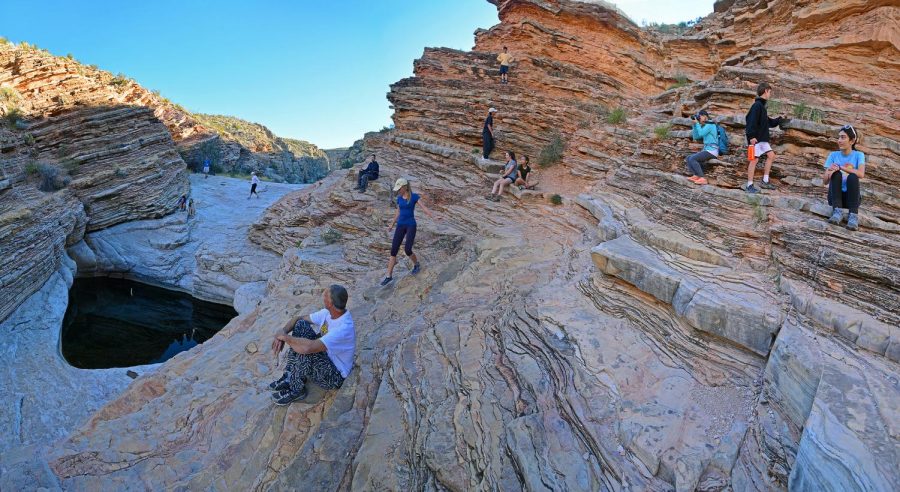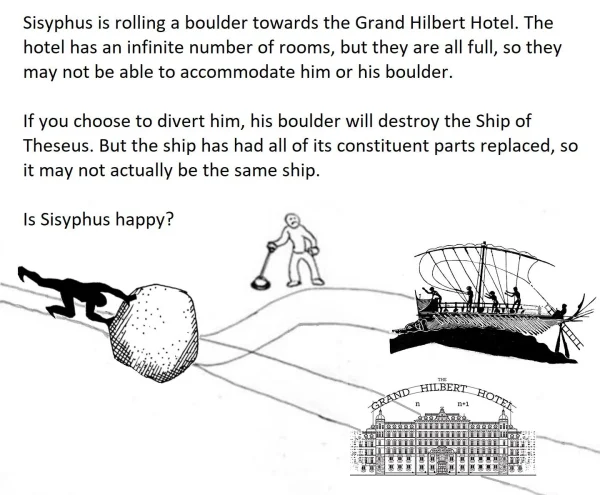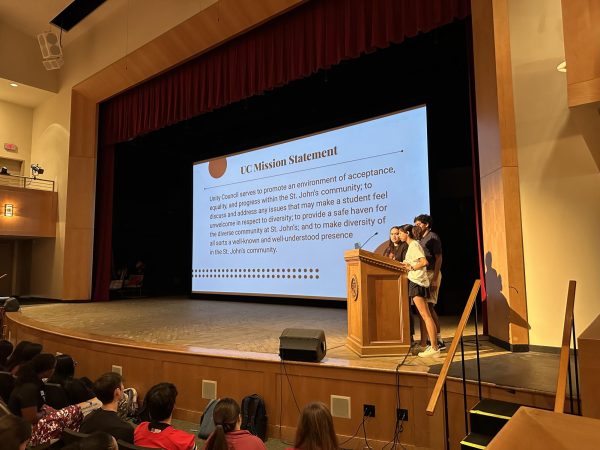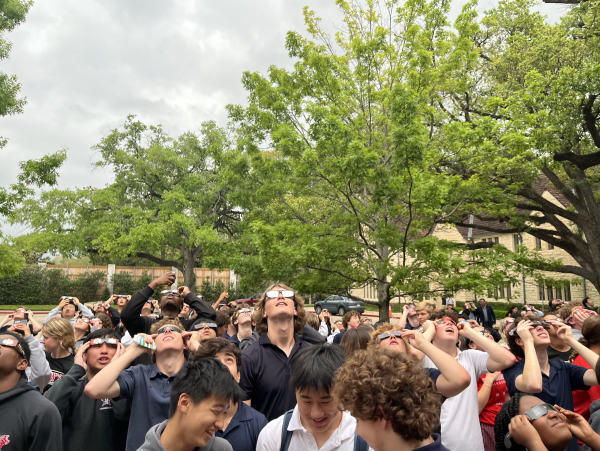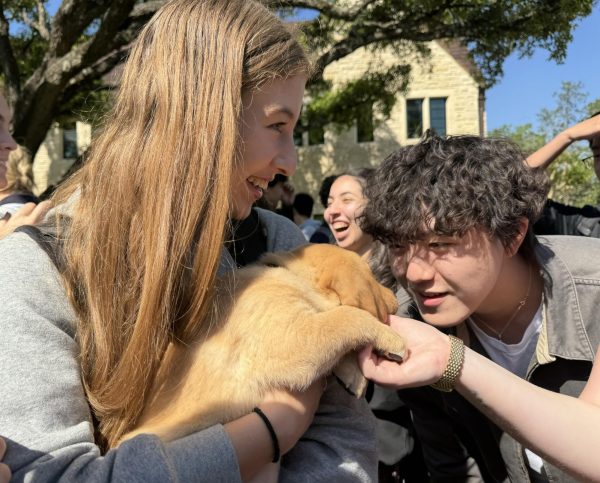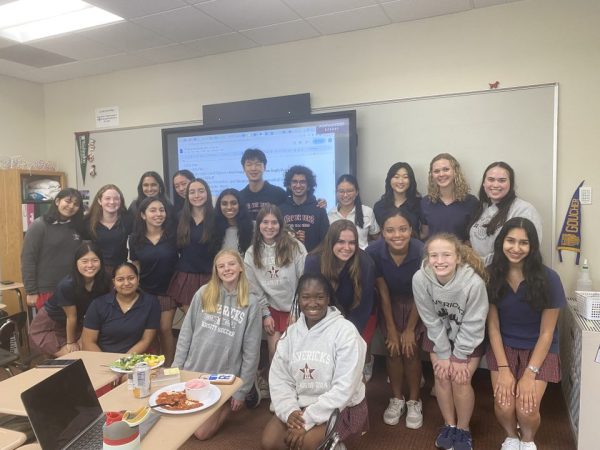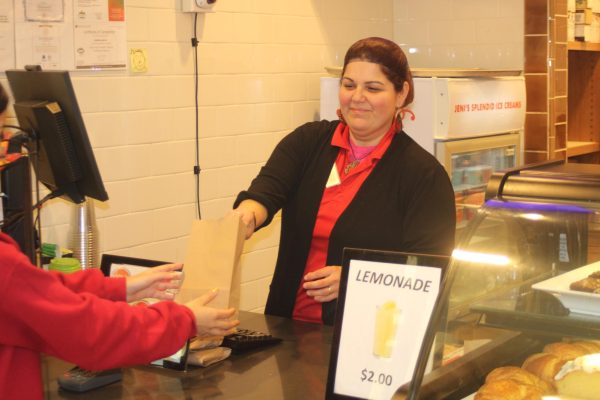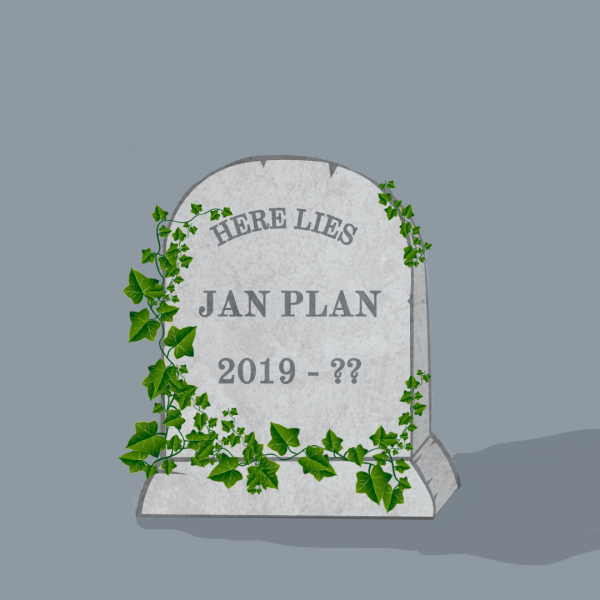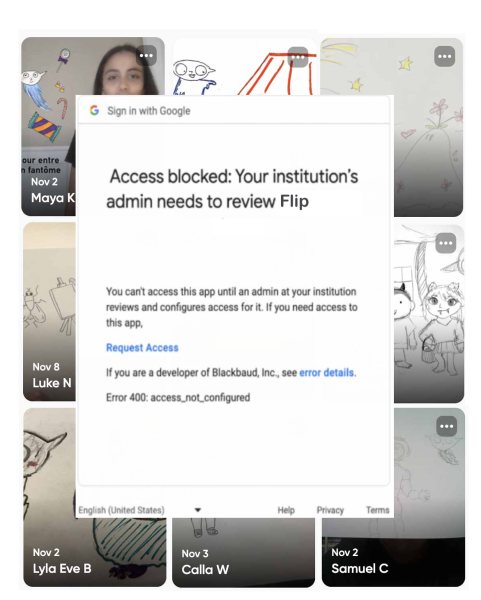Annual Big Bend trip proceeds after government shutdown
Last year’s eighth graders enjoy the view on one of their hikes. Because the 35-day-long government shutdown has ended, the Class of 2023’s Big Bend trip will take place.
February 18, 2019
From riding the rapids of the Rio Grande and cooking in front of the Sierra del Carmen, St. John’s eighth graders enjoy a week at Big Bend National Park annually. This year, despite having been threatened by a possible government shutdown, the 42nd Big Bend trip is set to occur from Feb. 23 to March 1.
The longest government shutdown in U.S. history began on Dec. 22 when President Trump demanded $5.6 billion to build a border wall along the southern border in the appropriations bill for 2019, sparking disagreements in Congress. On Jan. 25, Trump and Congressional leaders agreed on a stop-gap spending bill to fund the government until Feb. 15, ending the shutdown.
During the shutdown, over 420,000 government employees were forced to work without pay while an additional 380,000 were furloughed. Although the National Park remained open during the government shutdown, campgrounds, including the site at Rio Grande Village where students usually stay, were closed. Furthermore, the absence of park rangers and other services would have made it impossible to bring almost 170 teachers, students and counselors to Big Bend for a week.
Eighth grade Civics teacher Rosie Beniretto has taught at St. John’s since the Big Bend trip tradition began in 1977. Most students tell her that the Big Bend trip is one of the most pivotal experiences of their lives. Providing an opportunity for students to spend time with each other without distractions, the trip encourages responsibility and initiative. Following the mantra “Group needs first, then individual,” students pack, cook and clean all gear and food needed for 170 people in a week.
“Students and teachers are forced out of their comfort zones, into situations where they have to take initiative [and] be responsible for themselves,” Beniretto said. “It’s something that you don’t think that you can do until you do it.”
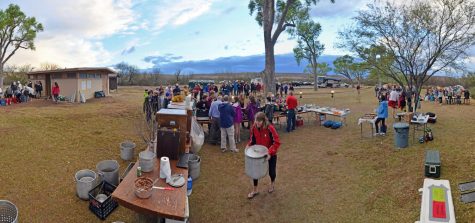
Students prepare dinner at the campground.
After sharing on social media that the 2019 Big Bend trip was in jeopardy, Director of Experimental Education Marty Thompson, who leads the planning of the trip, received support from many alumni.
“Many people hadn’t stopped to think about one of the impacts, and not the most important impacts, of the government shutdown, but one that touched this community,” Thompson said.
As Feb. 15 approached, many people were unsure that the government would remain open. However, Trump signed a bill on the last day, allocating $1.37 billion for fencing along the border, but in exchange for averting another government shutdown, he declared a national emergency to build the wall.
Thompson and eighth graders are relieved and excited that Congress reached an agreement to keep the government and the park open.
“Big Bend is a big part of the St. John’s middle school experience, and it would be really [sad] if our grade alone had to miss out on it,” eighth grader Emily Huang said.
Despite the possibility of a shutdown, planning for the trip continued as normal. If the government had closed again, students, teachers and counselors would have followed an alternate itinerary, which included camping at several Texas State Parks (Lost Maples, Seminole Canyon, Davis Mountains and Enchanted Rock) instead of Big Bend.
According to Thompson, this year’s trip will be particularly important in providing context for the current political debate of funding of a border wall. Students will be canoeing down the Rio Grande and spending a week less than 50 yards from the physical international border.
“If we’re preparing leaders for the future of Houston and our country, they will be able to look back on and focus on the time they spent on the border as they grow up and move on,” Thompson said.
To give eighth graders an opportunity to make a difference, Thompson visited the eighth grade Civics classes, taught students about writing letters to Congress and shared a letter that he wrote.
“It just felt like the teachable moment,” Thompson said. “A lot of the kids got into it and realized that they’re not powerless.”
Writing letters to Congress served as a summative assessment for the Civics classes, which had just finished studying the Constitution, various branches of government and checks and balances. According to Beniretto, students took their knowledge from the course to compose letters.
“We’re trying to get the students to live the course,” Beniretto said. “They’re not going to remember a lot of the facts that we teach, but if they can remember the fact that they have power and tools to use, that will be a successful course. ”
According to Thompson, the Big Bend trip is a unique opportunity for students to develop their sense of self before entering the Upper School.
“Everybody learns something about themselves when they’re out there on the trip,” Thompson said. “Everybody is challenged in some way.”



